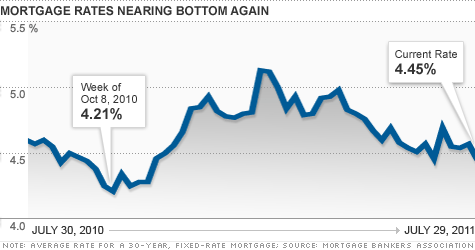Seasonal Considerations for Dubai to UK Cargo Shipping

Shipping cargo between Dubai and the UK is a complex task that requires careful planning and consideration of various factors, especially seasonal variations. Understanding how different seasons affect cargo shipping can significantly enhance efficiency, reduce costs, and ensure timely delivery. This article explores the key seasonal considerations for Dubai to UK cargo shipping.
Understanding the Dubai to UK Shipping Route
Dubai is a major global logistics hub, strategically located to facilitate trade between the East and the West. The UK, on the other hand, is a significant European market. The shipping route between these two regions is heavily trafficked and involves passing through critical maritime chokepoints such as the Suez Canal. The efficiency and reliability of this route can be affected by various seasonal factors.
Climatic Conditions and Their Impact
The climatic conditions along the shipping route from Dubai to the UK can vary significantly. Understanding these variations is crucial for planning and executing successful cargo shipments.
Summer Heat in Dubai
Dubai experiences extremely high temperatures during the summer months, often exceeding 40°C (104°F). This intense heat can affect the condition of certain types of cargo, especially perishables and temperature-sensitive goods. Cargo containers may require additional cooling solutions or insulation to maintain optimal temperatures. The summer heat can also impact the working conditions at ports, potentially slowing down loading and unloading operations.
Winter Weather in the UK
In contrast, the UK experiences cold winters, with temperatures often dropping below freezing. Snow, ice, and heavy rains can disrupt port operations, cause delays in transportation, and affect the handling of cargo. Special considerations must be made for cargo that is sensitive to cold or requires dry conditions. Moreover, winter storms in the North Atlantic can affect sea routes, making maritime shipping more challenging.
Monsoon Season and the Impact on Shipping
The monsoon season, particularly affecting the Indian subcontinent, including Pakistan, can have a significant impact on cargo shipping routes. Although Dubai itself is not directly affected by monsoons, ships traveling from or to Pakistan as part of the Pakistan and UK Cargo Service might face delays due to heavy rains, rough seas, and port congestion in the region.
Peak Shipping Seasons
Understanding peak shipping seasons is essential for optimizing logistics and managing costs. Peak seasons typically see higher demand for shipping services, leading to increased freight rates and potential delays.
Holiday Season
The period leading up to major holidays such as Christmas and New Year sees a surge in shipping activity. Retailers in the UK ramp up their inventory in preparation for holiday sales, leading to increased demand for cargo services from Dubai and other regions. Planning shipments well in advance during this period is crucial to avoid delays and higher costs.
Back-to-School Season
Another peak period is the back-to-school season, typically occurring in late summer. Retailers stock up on school supplies, clothing, and electronics, leading to a spike in shipping demand. Proper planning and early booking of cargo services can help mitigate the challenges of this busy period.
Strategic Considerations for Efficient Cargo Shipping
To navigate the seasonal challenges effectively, businesses must adopt strategic measures and best practices.
Collaboration with Reliable Cargo Services
Partnering with experienced and reliable cargo service providers, including those offering Pakistan and UK Cargo Service is essential. These providers have the expertise to handle seasonal challenges, ensure proper packaging and handling of goods, and offer solutions for temperature-sensitive cargo. Their experience in dealing with peak seasons and adverse weather conditions can be invaluable.
Advanced Planning and Scheduling
Effective planning and scheduling are crucial for mitigating seasonal impacts. Businesses should forecast their shipping needs well in advance, taking into account peak seasons and potential delays due to weather conditions. Advanced booking of cargo space can help secure better rates and ensure timely delivery.
Use of Technology and Data Analytics
Leveraging technology and data analytics can enhance the efficiency of cargo shipping. Real-time tracking systems provide visibility into the movement of goods, allowing for proactive management of delays and disruptions. Data analytics can help predict peak shipping periods and optimize routes, ensuring cost-effective and timely deliveries.
Diversification of Shipping Routes
Diversifying shipping routes can provide flexibility and reduce the risk of delays. While the traditional route from Dubai to the UK via the Suez Canal is popular, exploring alternative routes can be beneficial during peak seasons or adverse weather conditions. For instance, cargo can be routed through other regional hubs or even through air freight services if time-sensitive.
Temperature-Controlled Logistics
For cargo sensitive to temperature variations, investing in temperature-controlled logistics solutions is essential. This includes the use of refrigerated containers, thermal blankets, and monitoring systems to ensure the integrity of the goods throughout the shipping process. These measures are particularly important during the extreme summer heat in Dubai and the cold winters in the UK.
Conclusion
Seasonal considerations play a critical role in the efficiency and reliability of cargo shipping from Dubai to the UK. By understanding the impact of climatic conditions, monsoon seasons, and peak shipping periods, businesses can better plan and execute their shipping strategies. Partnering with reliable cargo service providers, including those offering “Pakistan and UK Cargo Service,” adopting advanced planning and scheduling, leveraging technology, diversifying shipping routes, and investing in temperature-controlled logistics are key strategies to mitigate the challenges posed by seasonal variations. With these measures in place, businesses can ensure the smooth and timely delivery of their cargo, regardless of the season.



